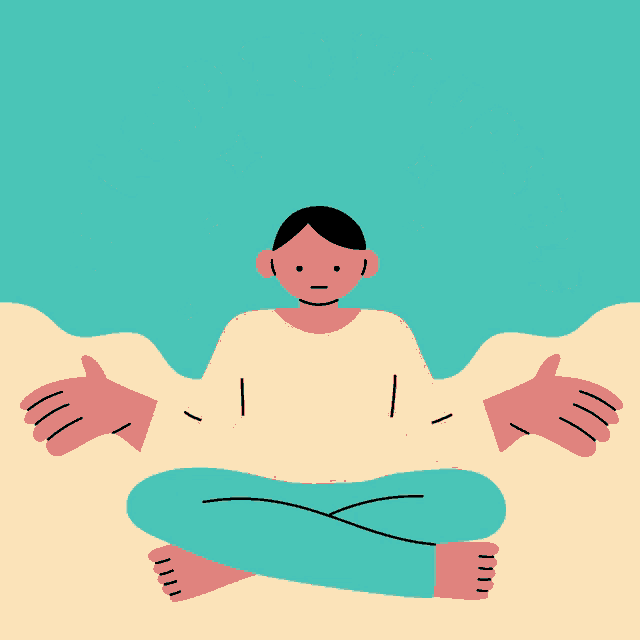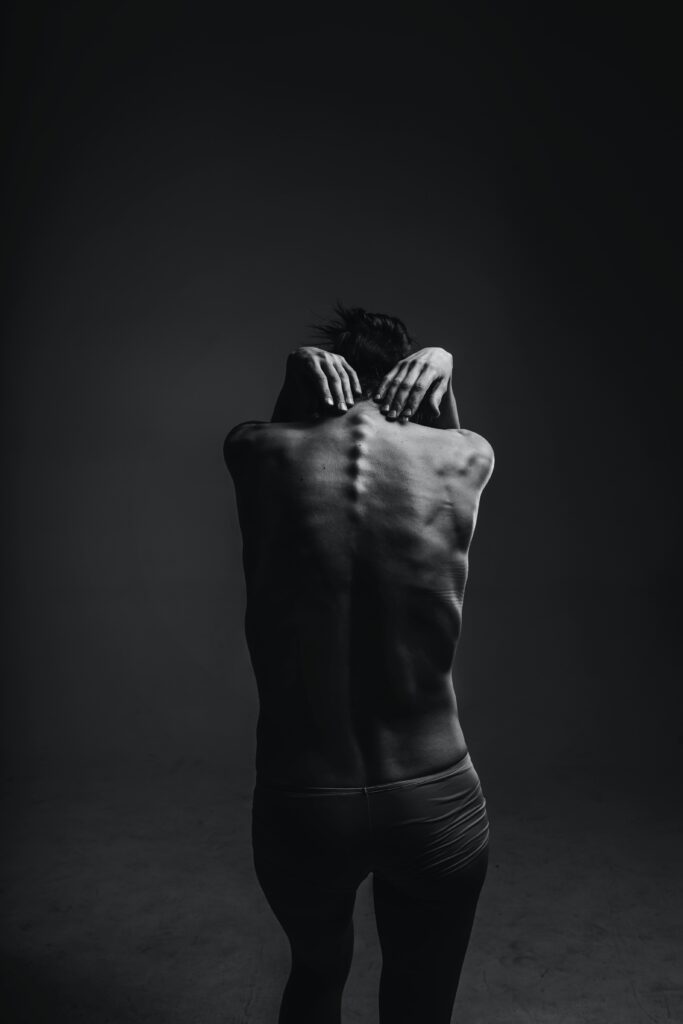To what extent does your feature(s) currently preoccupy you?
Advertisement - Scroll to continue
You can’t stop thinking that your body is too small or doesn’t have enough muscle.
You spend over an hour a day repeatedly thinking about or looking at a perceived imperfection on your face or body.
To what extent do you consider your physical appearance to be the most important aspect of your identity?
You’ve taken repeated selfies to double-check your appearance or to monitor your perceived imperfection to see if it is getting “worse.”
How often do you do you deliberately check your feature(s)?
Advertisement - Scroll to continue
There are times that you avoid mirrors because you can’t stand to look at yourself and your perceived imperfection(s).
You don’t believe people when they tell you that you look “good,” “fine,” etc.
You avoid social interactions because you feel that everyone will stare at your physical flaw(s) and you don’t want to subject others to looking at you.
You feel shame, embarrassment, or anxiety related to a perceived flaw on your body or face.
How convinced are you that this body part(s) is hideous, ugly, or unattractive?
Advertisement - Scroll to continue
To what extent does your feature(s) currently interfere with your ability to work or study, or your role as a homemaker?
I have you repeatedly measured or touched my perceived flaw.
This preoccupation with your appearance impacts your life — socially, professionally, and emotionally.
To what extent do you feel your feature(s) are currently ugly, unattractive or ‘not right’?
You’ve resorted to unnecessary plastic surgery or harmful behavior such as skin-picking because you can’t stop focusing on how deformed you think you look.
Advertisement - Scroll to continue
To what extent does your feature(s) currently cause you a lot of distress?
How often does your feature(s) currently lead you to avoid situations or activities?
To what extent are your physical characteristics presently interfering with your social life?
You find yourself frequently needing reassurance about your appearance, checking the mirror, changing outfits, or comparing your appearance to that of others.




We welcome everyone very warmly! Would you like to check if you struggle with Body dysmorphia? You are in the proper place if that is the case. Today, especially for you, we have prepared a quiz on this topic, it’s Body Dysmorphia Test. Answer twenty questions and see if you can have a problem with Body Dysmorphia.

Body dysmorphic disorder, also known as dysmorphophobia, is a mental disease defined by the obsessive belief that some feature of one’s own body part or look is terribly wrong and hence necessitates extraordinary steps to conceal or correct it.
Would you like to check if you have any other eating disorder? Are you interested in a quiz similar to our Body Dysmorphia Test? Check our Eating Disorder Test and answer twenty questions to see what will be your result.
The fault is imagined in BDD’s delusional version. If the fault exists, its significance is greatly inflated. In any case, thoughts about it are widespread and invasive, and they can consume several hours of one’s day, creating serious anguish and impeding normally normal activities. BDD is categorized as a somatoform disease, and the DSM-5 classifies it as part of the obsessive-compulsive spectrum, distinct from anorexia nervosa.
According to estimates, BDD affects 0.7% to 2.4% of the community. It generally manifests itself during puberty, and both men and women are affected. Males are more likely to suffer from the BDD type of muscular dysmorphia, which causes them to see their bodies as being too tiny.
You should definitely check our Picky Eater Test | Are You a Picky Eater?. Answer twenty questions to see if you are a picky eater!
Apart from worrying about it, one examines and contrasts the perceived imperfection on a regular basis, and may develop unique habits to avoid contact with other people that reveals it. To avoid the stigma of vanity, most people conceal their concerns. BDD has been underdiagnosed, even by psychiatrists. BDD has a high rate of:
- suicidal ideation
- attempts at suicide
- severely reducing life quality via educational and vocational dysfunction
- social isolation.
Enrico Morselli characterized a disease called dysmorphophobia in 1886, describing it as a sensation of being unattractive despite the fact that nothing appears to be problematic with the person’s look. The American Psychiatric Association recognized the illness in the third version of its Diagnostic and Statistical Manual of Mental Disorders in 1980, classifying it as an atypical somatoform disorder (DSM). The DSM-1987 III’s edition changed the word from body dysmorphic disorder to separate somatoform disorder.
Would you like to check if you are dehydrated? Try this quiz and find an answer to a question: Am I Dehydrated? | Completely Free Test | Instant Results. Answer all the questions to find out now!
DSM-IV, published in 1994, describes BDD as an obsession with a perceived or insignificant fault in appearance that causes social or professional dysfunction and is not better described by another illness, like anorexia nervosa. The DSM-5, published in 2013, moves Body dysmorphia to a new type, adds operational criteria, and mentions the subtype muscular dysmorphia.
Characteristics Of BDD
The term “dysmorphic” comes from the Greek words “dismorfia” (abnormal or different) and “morpho” (form). Morselli defined those who felt subjectively ugly as suffering from a physical deficiency. Sigmund Freud (1856-1939), the Austrian psychoanalyst, once referred to one of his patients as a “Wolf Man” because he was suffering from characteristic BDD symptoms. Sergei Pankejeff, a rich Russian nobleman, was the man he was alluding to (1886-1979).
People with BDD have significant misperceptions regarding their physical appearance, which is prevalent in people who dislike their looks. Vanity is characterized by a desire to improve one’s looks, whereas BDD is characterized by a desire to simply normalize one’s appearance. Although delusional in around one-third of the instances, the appearance of worry is often non-delusional, an overrated thought.
We invite you to analize this Body Dysmorphia Quiz Buzzfeed created. It may help you to find an answer to the question if you have Body Dysmorphia.
The face, skin, stomach, arms, and legs are frequent areas of emphasis on the body. Furthermore, many locations can be concentrated on at the same time. Bigorexia is classified as a body dysmorphic condition. Despite being strong and trained, persons with muscular dysphoria view their bodies as being overly thin.
Many people seek dermatological therapy or plastic procedures, which seldom relieve their suffering. Efforts at self-treatment, like skin plucking, on the other hand, might result in the formation of lesions where there were none previously existed.
Body Dysmorphia Symptoms
Despite being an obsessive-compulsive condition, BDD entails increased despair and social avoidance. BDD is frequently linked to social anxiety disorder. Some people believe that others are secretly pointing out their shortcomings. Cognitive tests and neuroimaging reveal a preference for extensive visual analysis as well as an emotional hyperarousal.
Read more about Body Dysmorphia on this website. There you may find out about Body Dysmorphia treatment and take Body Dysmorphia test nhs.
Someone suffering from BDD may:
- ruminate on the perceived bodily imperfection for many hours per day or longer
- utilize social avoidance or camouflage with cosmetics or clothing
- check the appearance repeatedly, contrasts it to that of other individuals
- frequently seek verbal reassurances
- avoid mirrors
- change their clothes frequently
- clean excessively
- restrict their meals.
Social Isolation
The intensity of BDD can fluctuate, and flare-ups frequently result in missed school, work, or social activities, sometimes leading to prolonged social isolation, with some being housebound for prolonged times. The most severe kind of social impairment is generally avoiding all social activity.
Academic and vocational performance suffer as a result of poor focus and motivation. BDD causes more misery than both major depression and diabetes, and suicide ideas and efforts are especially common.
Am I Fat Or Do I Have Body Dysmorphia Quiz
Does a body image disorder affect you personally? Test now whether you suffer from Body Dysmorphia. Complete this 20-question quiz to find out how you perform.
